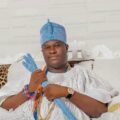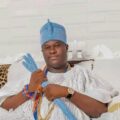By Jimmy
In the history of the Yoruba people, before they came to settle in what is known today as South Western Nigeria, they migrated from somewhere. They had a history and belonged to a different tribe. Numerous studies have been drawn to their vibrant culture, philosophy, arts, language, sociology, and history.
The earliest empire in the history of the Yoruba people was the Ife Empire. It was established in what is now known as eastern Benin and southwestern Nigeria and rose to fame for its intricate works of art.
Ife is to the Yorubas what Mecca is to Muslims. Oduduwa himself established Ife as the center of everything Yoruba when he sent his sons out from Ife to different regions of Yorubaland to form their own separate kingdoms.
The literal meaning of Ile-Ife in Yoruba is ‘the spreading house’ or ‘the place of dispersion’. It is from here that the Yoruba tribe spread out to other parts of West Africa. Ile Ife was the beginning of Yoruba civilization and is said to date back to around 500 B.C. when it was founded.
It is the oldest Yoruba city, presently part of Osun State, and has an estimated population of 501,000 people.
Through trade with Sahelian and woodland nations, Ile Ife became more powerful and was one of West Africa’s greatest cities in the fourteenth century.
The ancient Yoruba Kingdoms in the history of the Yoruba people
Ile-Ife
This was the first and oldest kingdom in the history of the Yoruba people. It is considered the spiritual and cultural capital of the Yoruba people, believed to be the place where humanity began.
The city is home to many shrines and artifacts.
Oyo
This was one of the most powerful and influential Yoruba kingdoms, known for its strong military, impressive economy, and sophisticated political system. Oyo is ruled by the Alaafin, who is considered the supreme ruler of all Yoruba kingdoms.
Ife-Modakeke
This was a breakaway city from Ile-Ife, established after a civil war in the 19th century. The city is known for its skilled artisans, especially in the craft of bead-making.
Ijebu
Ijebu is a very important kingdom in the history of the Yoruba people, even to this day. This kingdom was known for its successful and extensive trade routes, especially in the export of textiles and other goods.
The ruling family of Ijebu were considered among the wealthiest in Yoruba land.
Ekiti
This was a collection of smaller city-states during the history of the Yoruba people, known for their agricultural prowess and strong cultural traditions. The Ekiti people were skilled farmers and ironworkers, and their art and music were highly regarded.
Ijesha
This kingdom was known for its mountainous terrain and was considered a major centre for the worship of the Yoruba goddess Osun. The Ijesha people were also skilled hunters and metalworkers.
Ketu
In the history of the Yoruba people, Ketu was located in present-day Benin and known for its strong ties to the neighboring Fon people. Ketu was also considered a major center for the worship of the Yoruba deity Orunmila and was known for its highly skilled blacksmith culture.
READ: The Feast of Christ the King: A celebration of sovereignty and salvation
Over time, Yoruba people have spread across the world, contributing to the cultural fabric of many countries and communities. One of the most significant factors in the Yoruba diaspora is the Transatlantic slave trade, which saw millions of Yoruba people forcibly taken from their homes and brought to the Americas as slaves.
In countries such as Brazil, Cuba, Trinidad and Tobago, and the United States, Yoruba culture and religion have had a significant influence on the local culture. Particularly through the practice of the Yoruba-derived religion, known as Santería or Lucumi.
In addition to the slave trade, Yoruba people have also migrated to other parts of the world for a variety of reasons, including education, work, and personal connections. Some others have inter-married.
In countries such as the United Kingdom, Canada, and France, there are vibrant Yoruba communities that celebrate their heritage through cultural events, music, and dance.
One of the most significant aspects of the history of the Yoruba people and their culture that has spread across the world is the practice of Ifa, a spiritual tradition that is based on divination and the worship of deities known as Orisha. Ifa has gained popularity among people of all races and nationalities, and there are now Ifa practitioners and communities in many parts of the world.








